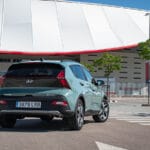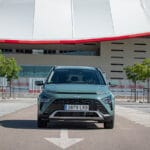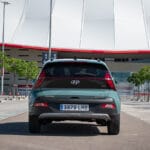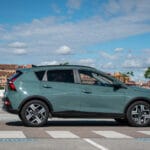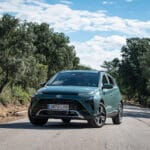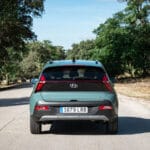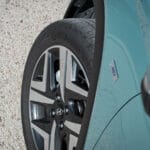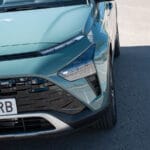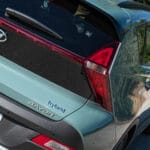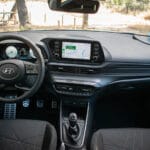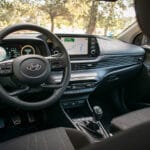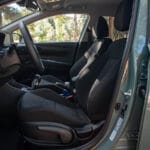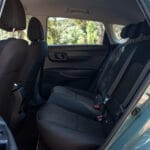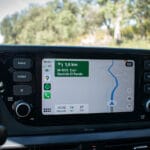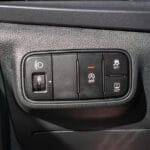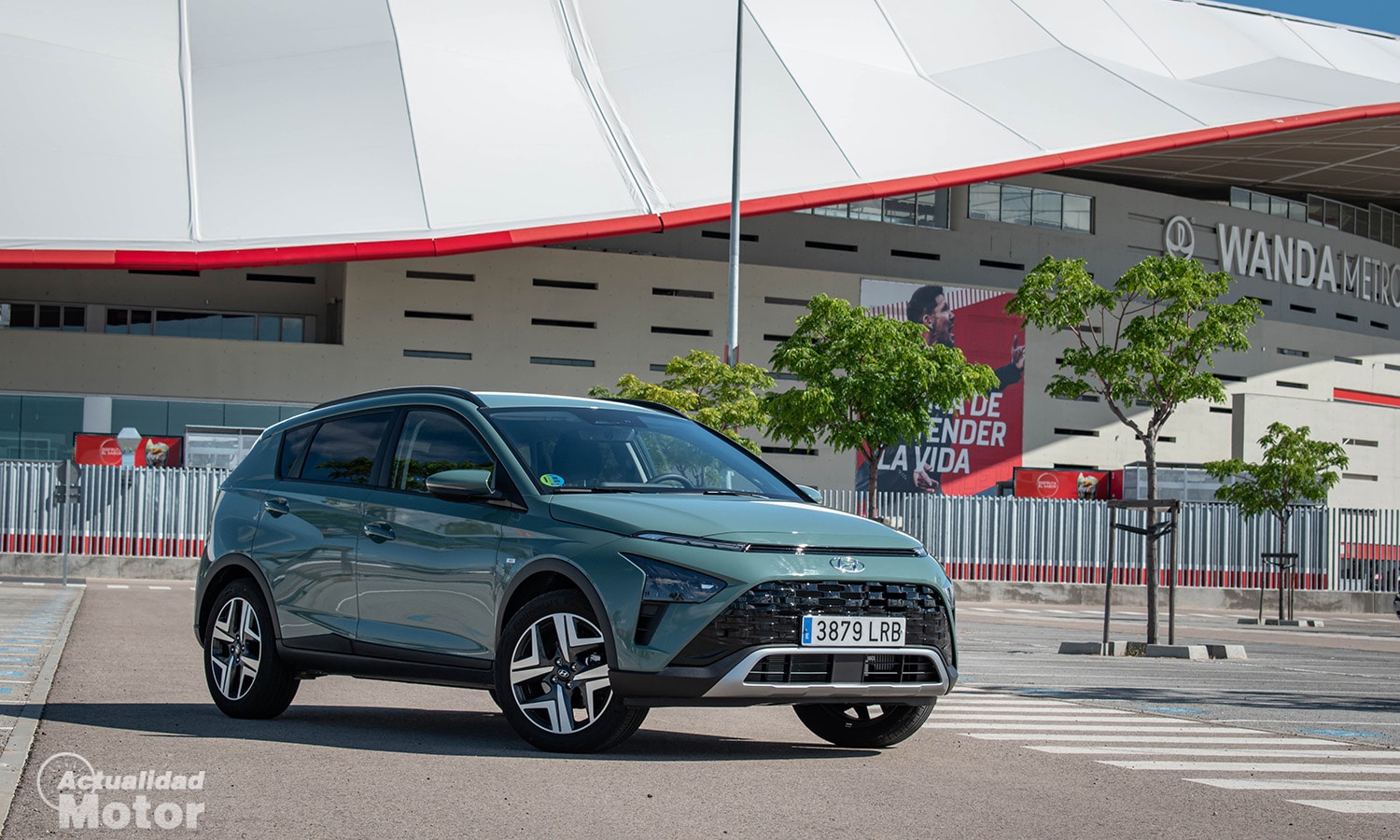
Hyundai It never ceases to amaze us and has already put on sale a new product to access the SUV range. Is named Hyundai bayon, and is positioned as an economical and sensible alternative to the B-SUV segment. It does not have the quality or performance of the Kona, but in return it offers a sufficiently spacious interior, a more than correct trunk, intelligent engines and a contained price.
Thus, although the external dimensions are similar, the brand Asian has markedly differentiated this new bayonet of the Kona. The first is aimed at an audience with a tighter and less demanding budget, while the Hyundai Kona tries to convince customers seeking greater differentiation and, above all, superior performance.
And with that said, the South Korean firm intends to sell about 4.000 units a year complete of this product. It is a car made in Europe for the European market that continues with the Sensous Sportiness design identity. By the way, its name comes from Bayonne, a beautiful town in southeastern France. Although we can also say that it comes from Galicia... Be that as it may, Let's get behind the wheel of the new Hyundai Bayon.
Attractive, crossover and differentiated, this is the Hyundai Bayon
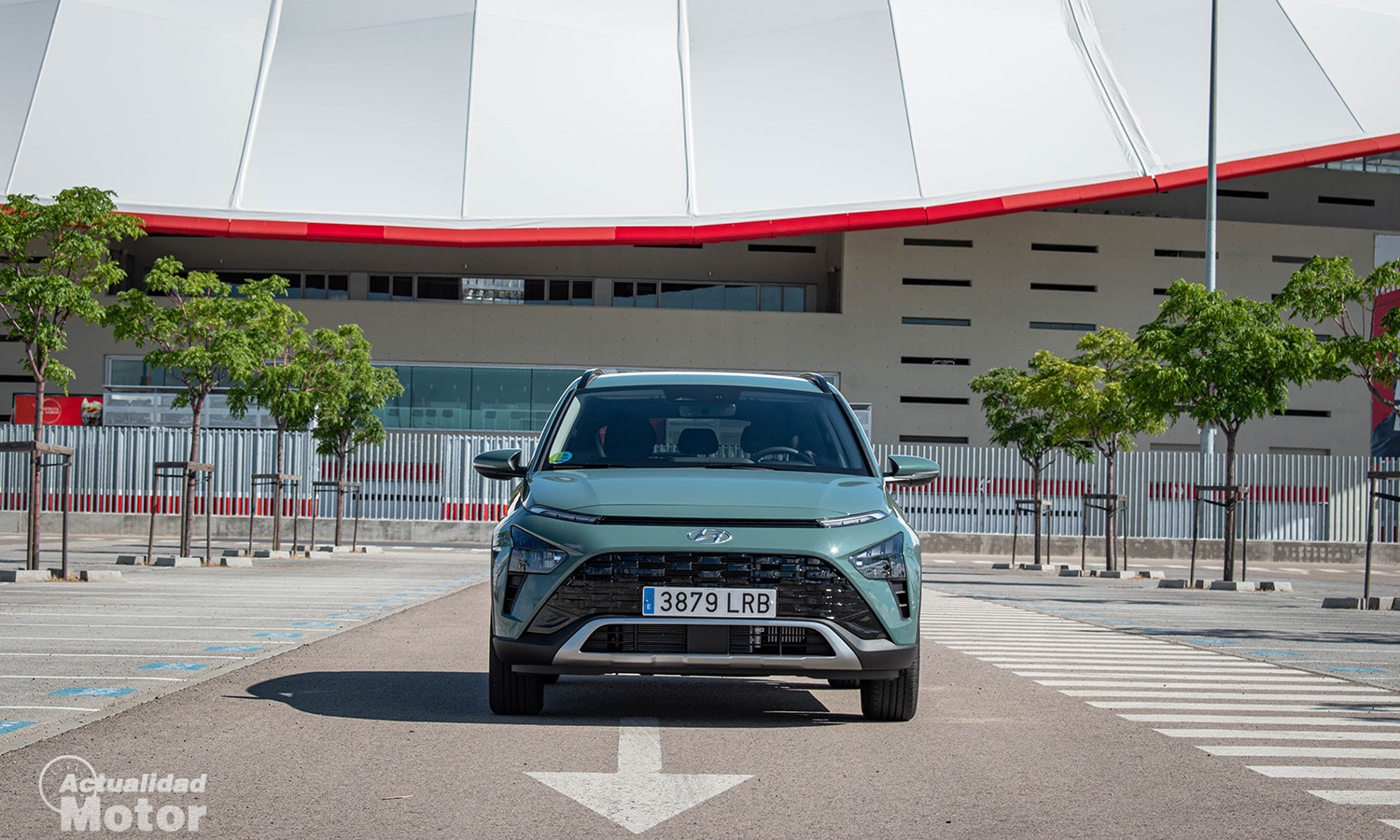
Starting with the design, as we said, Hyundai has impregnated this new crossover with its language of Sensuous Sportiness design. It is inherited from recent successful launches, such as the Tucson, but with its own personality.
On top of the front we have fine lines of LED lighting, which act as daylight, and communicate with a slight aesthetic opening. Further down and at the ends are the main lights, while the grill is generous, with a second air intake in the lower area.
If we go to lateral we find strong ascending tension lines, a rear pillar with a certain arrow shape and, how could it be otherwise, lower protections to increase that country style. Indeed, rims can be up to 17 inches on top finishes. In addition, it is available in nine colors and the roof in black as an option.

La rear it is also striking, with a very attractive appearance. Here we can see a characteristic split bezel with a horizontal strip and the pilots again in the shape of an arrow. Meanwhile, a roof spoiler appears in the upper area, finishing off the lower part with a robust bumper.
Inside everything is heritage of the i20
For its part, the passenger compartment is traced to that of the Hyundai i20 which we tested a couple of months ago. And it is that this new Bayon takes its platform, mechanics and technologies. All the dashboard, screens, steering wheel, controls, air conditioning and other elements are those of the aforementioned i20.
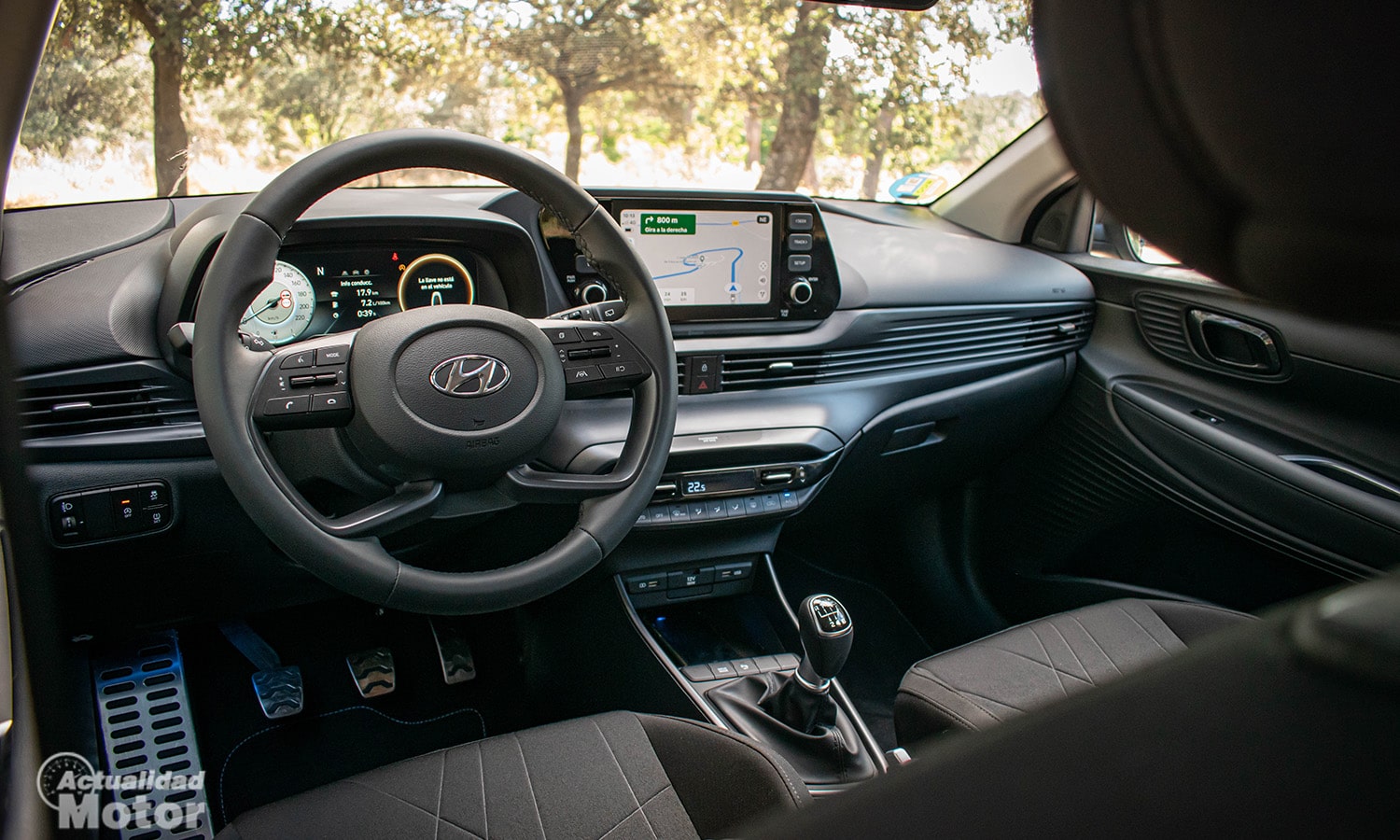
In this way, we find ourselves with a cabin full of hard plastics. However, the appearance is pleasant, as is the touch on the main surfaces. It is also commendable that settings are really good, because we did not hear a single creak when pressing on the most sensitive parts. Very good from Hyundai.
Regarding the section of the screens, from the second finish (Maxx) we already have a digital instrument cluster as standard, with a size of 10,25 inches. It is customizable and changes the graphics depending on the driving modes, with a clear and pleasant aesthetic.
For its part, the unit that we have tested has the Tecno finish. This means that in the upper part of the center console we have a 8 inch touch screen. Likewise, it is intuitive and easy to use, although the fonts are not the most innovative on the market. It is important to mention that we have Apple CarPlay and wireless Android Auto.

To top it off, we have good storage compartments, wireless charging pad for the mobile, nice seats, two front USB sockets (and one more in the rear seats), as well as two different styles of upholstery.
And with more than enough habitability
Un very positive section for the Hyundai Bayon it is that of habitability. As in almost all cars, the front seats are spacious enough for two adults of almost any size. In addition, the driving position is pleasant and offers many adjustment possibilities.
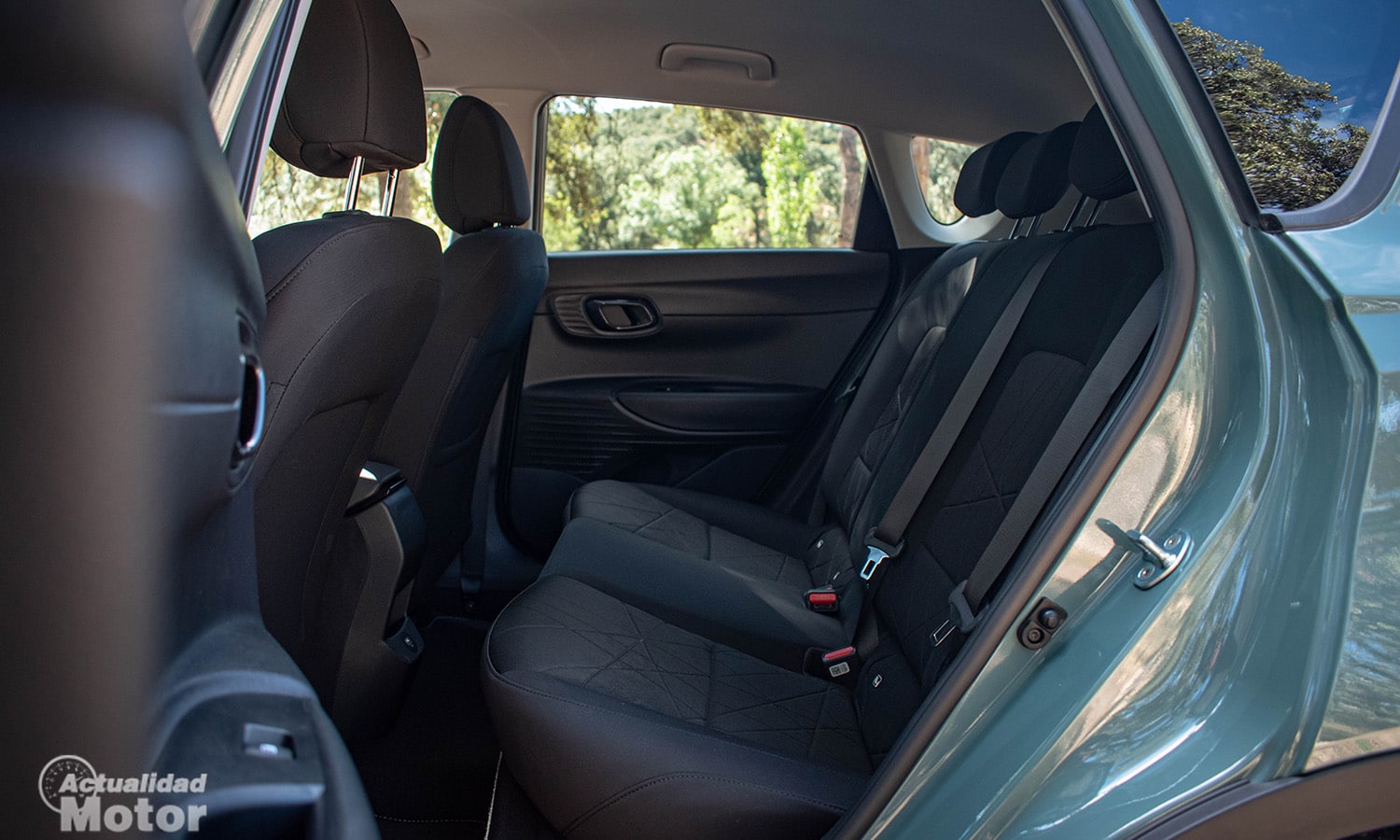
But it stands out especially in the rear seats. In a car of just 4,18 meters we find a very usable second row. Adults under 1,80 will travel comfortably and will have enough room for head, knees and feet.
Moreover, if these rear occupants are not too corpulent, the central seat can also be used with a fifth occupant for journeys not too long. And it is that this square is not too hard or narrow, while the transmission tunnel is somewhat wide but has little relief. Logically it is not a Hyundai Santa Fe, but for its size it offers a very good space.
This is the trunk of the Hyundai Bayon
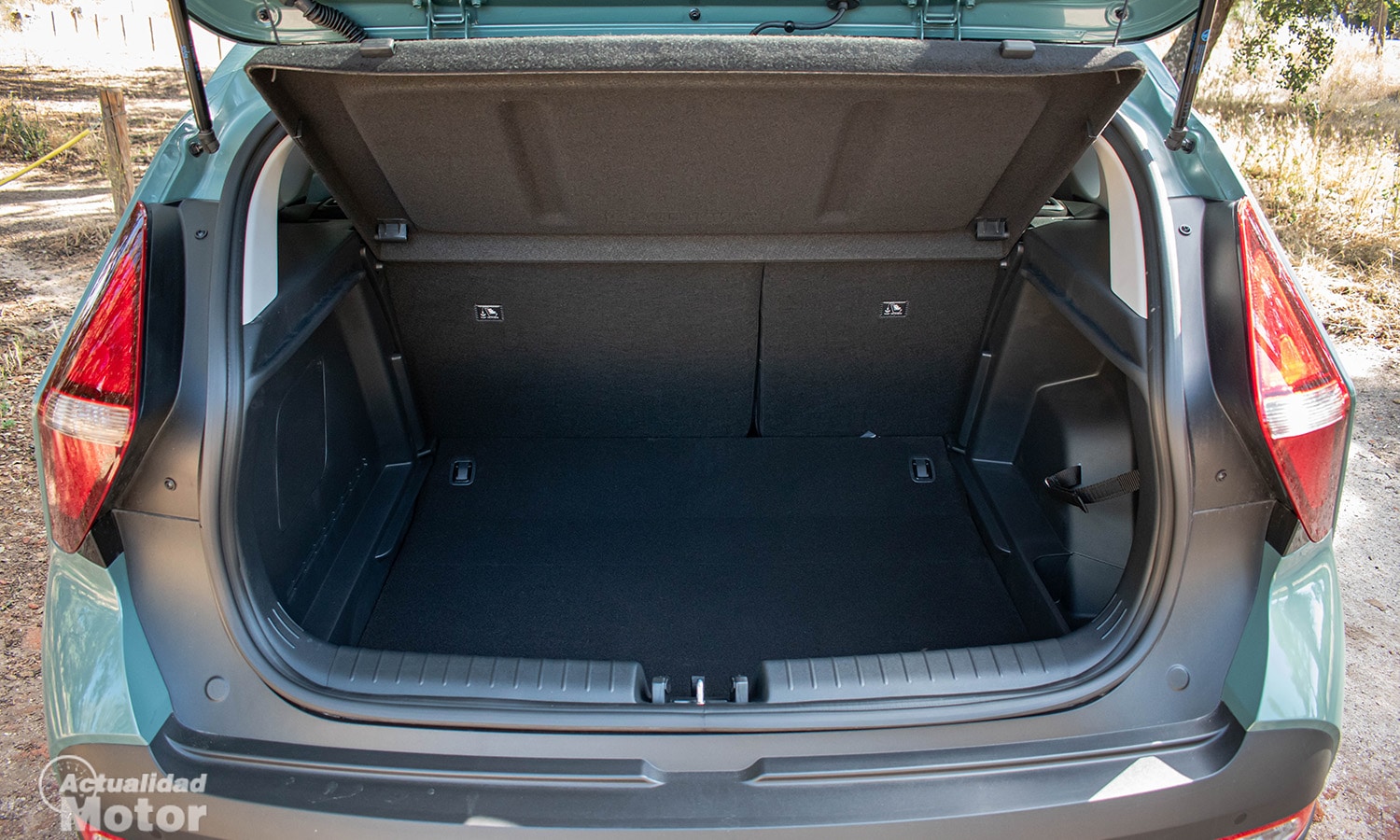
And continuing with the strengths of the Hyundai Bayon, the trunk covers 411 liters. This places him in a good position with respect to his rivals. What's more, it has practically 40 liters more than the Kona, which is satisfied with 374. If we knock down the seats, the volume increases to 1.205 liters.
Another important detail is that Hyundai has devised a guide that allows you to place the luggage cover tray attached to the backs of the seats. In this way, we avoid the situation of wanting to remove the rigid tray and not having a specific place to place it.
Atmospheric or turbo, manual or automatic, C or Eco label
Moving on to the section on engines, this new Bayon also inherits the mechanics of the aforementioned i20. In this way, we can choose between three power levels, always being front-wheel drive.

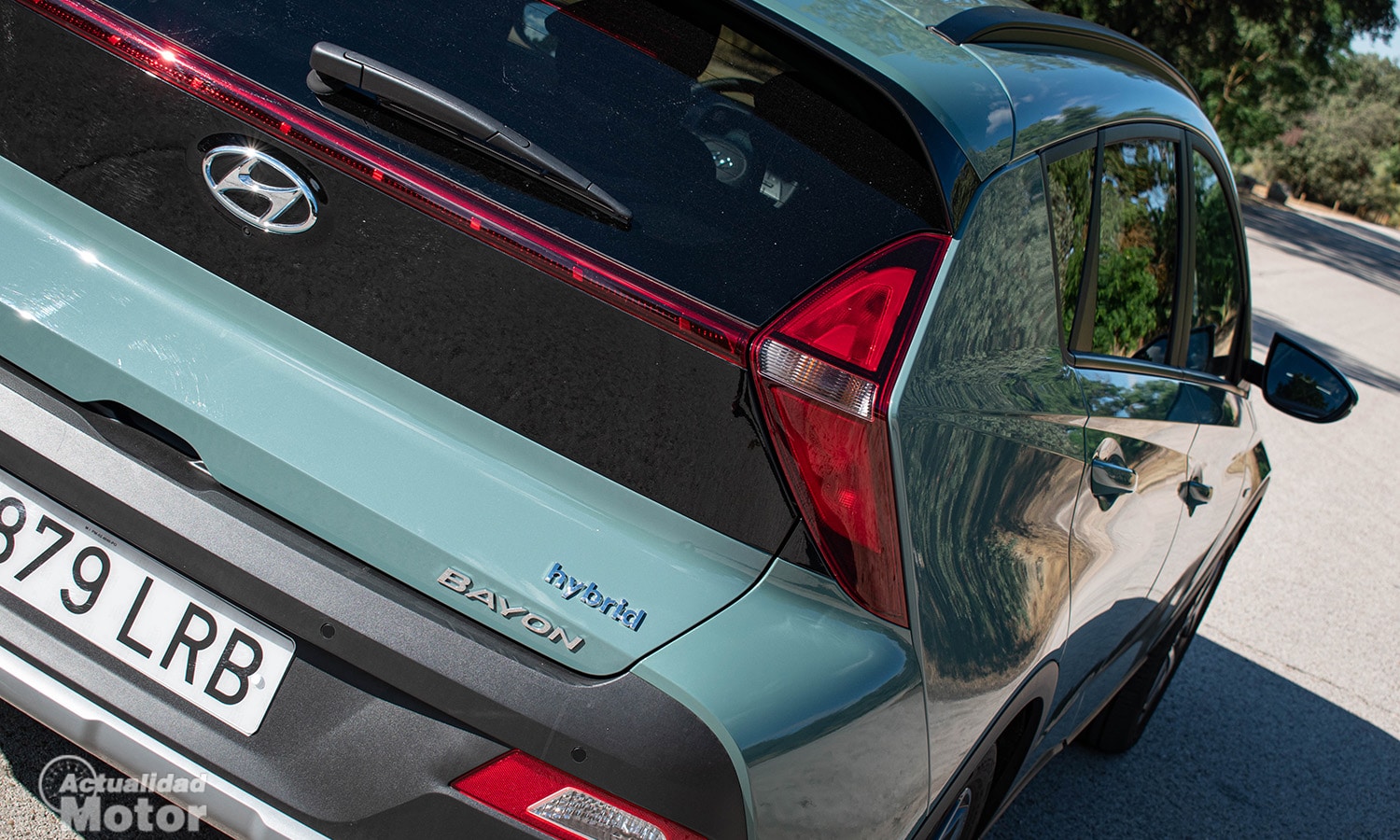
The access option is the naturally aspirated four-cylinder 1.2 MPI 84 hp, which is linked to a 5-speed manual transmission. Then we have the 1.0 T-GDI 100 hp, which can be a six-speed manual or a seven-speed DCT dual-clutch automatic. In this case we can choose between a conventional option and the 48 volt micro hybrid and Eco label.
The top of the range is also a 1.0 T-GDI 48V that develops a maximum power of 120 CV. This variant is only available with the Style finish, which is the highest, and with the seven-speed DCT gearbox.
At the wheel with the 48 hp Bayon 100V
For our first contact we have opted for a very balanced option. We opted for the 1.0 T-GDI block in its 100 hp version and 48-volt microhybridization, combined with the intelligent manual gearbox (iMT) six gears. The trim level of this car is the Techno.

The technical sheet of this version tells us that the turbocharged three-cylinder develops a maximum power of 100 hp between 4.500 and 6.000 laps, as well as a 172 Nm torque between 1.500 and 4.000. It can do the 0 to 100 in 10,7 seconds and reach a top speed of 183 km/h. Their mixed consumption is 5,3 l/100 km according to the WLTP cycle.
During this day we have been able to drive about 60 kilometers with the new Hyundai Bayon. We have mainly chosen urban routes and ring roads, circulating little on the motorway. Basically they will be the usual routes for a car like this.
Simplicity, that's the word
Probably the word that best defines the dynamic behavior of this car is simplicity. It is an easy vehicle to drive, comfortable for routine journeys and agile for maneuvering through traffic. In addition, it has a large cast of driving assistants and active safety systems.

Despite being a three-cylinder engine hardly transmits vibrations or noise to the passenger compartment, something that is always appreciated. In addition, low and medium speed operation is smooth, being easy to adapt to it. For the usual use of an urban crossover, it is an engine with more than enough solvency to circulate on all types of roads, although we probably cannot say the same when it comes to climbing a heavily loaded mountain pass.
To all this we must add that it has a light direction, with a lot of assistance, which will come in handy for wandering around and parking. In that case, the parking sensors and the rear camera are not missing either, which always give us a hand in the fairest spaces.
I also liked the suspension approach, which absorbs bumps and bumps well that unfortunately we usually find in the cities. This moron pulling soft along with the comfortable softness of the seats will come in handy for daily use.
sparing in consumption
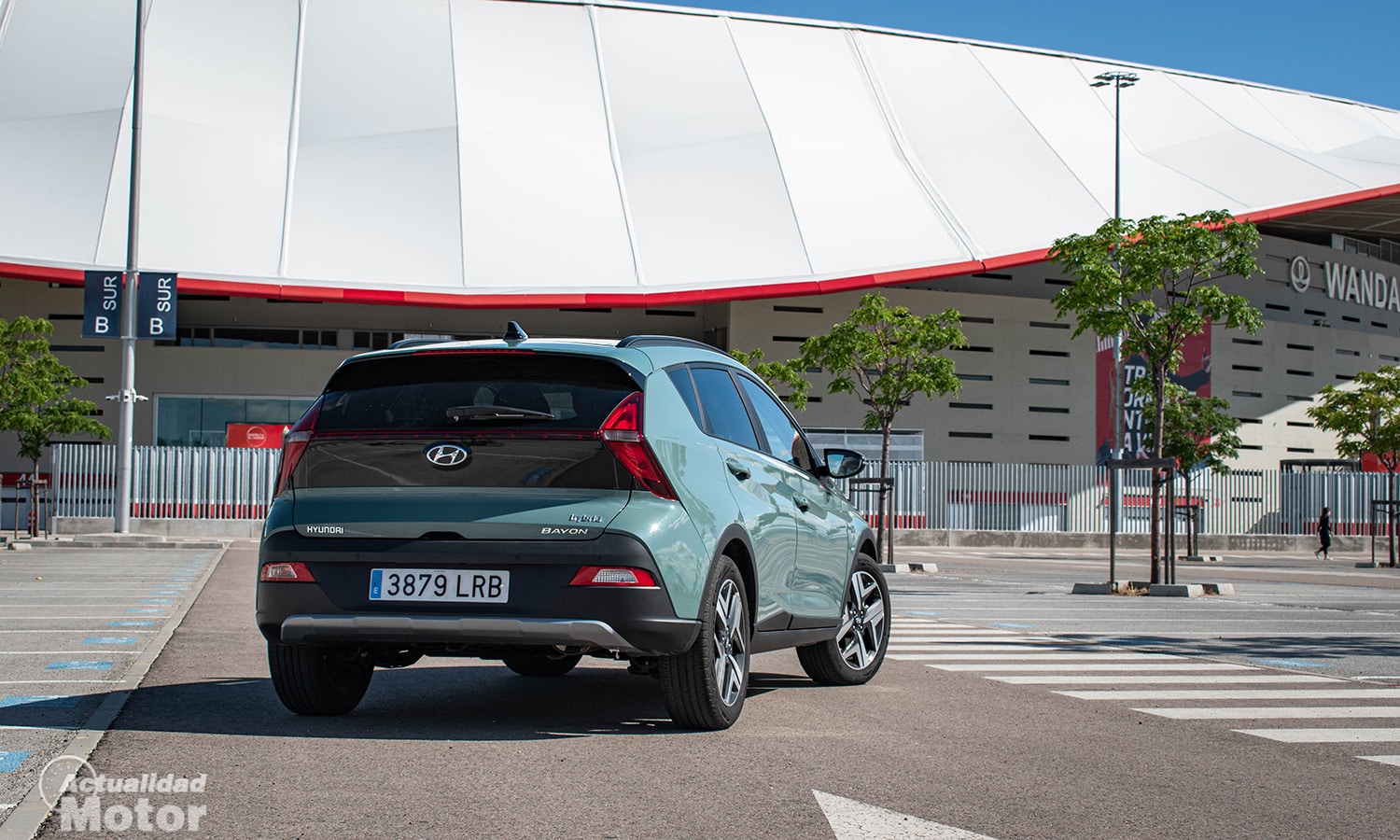
To top off, it has not been a long-term test where to get conclusive consumption data. Despite this, taking into account that we have driven agile and with several stops to take pictures and carefully look at some details of the car, the fuel consumption registered by the computer has been low.
According to the instrument panel we have spent an average of 6,2 liters per 100 kilometers. As I say, it is a figure that must be taken with tweezers and that will vary in a longer test, but it seems to me a very tight figure considering the situation of the day. It would not be surprising if in a longer test we could drop at least half a liter that amount.
Conclusions
The Hyundai Bayon arrives as the access to the brand's crossover range South Korean, remaining in a lower price step than the Kona to complete the SUV family. The protagonist of these lines rivals cars in the B-SUV segment such as the Renault Captur, Seat Arona, Kia Stonic or Citroen C3 Aircross. Play in the league of the cheapest so to speak.
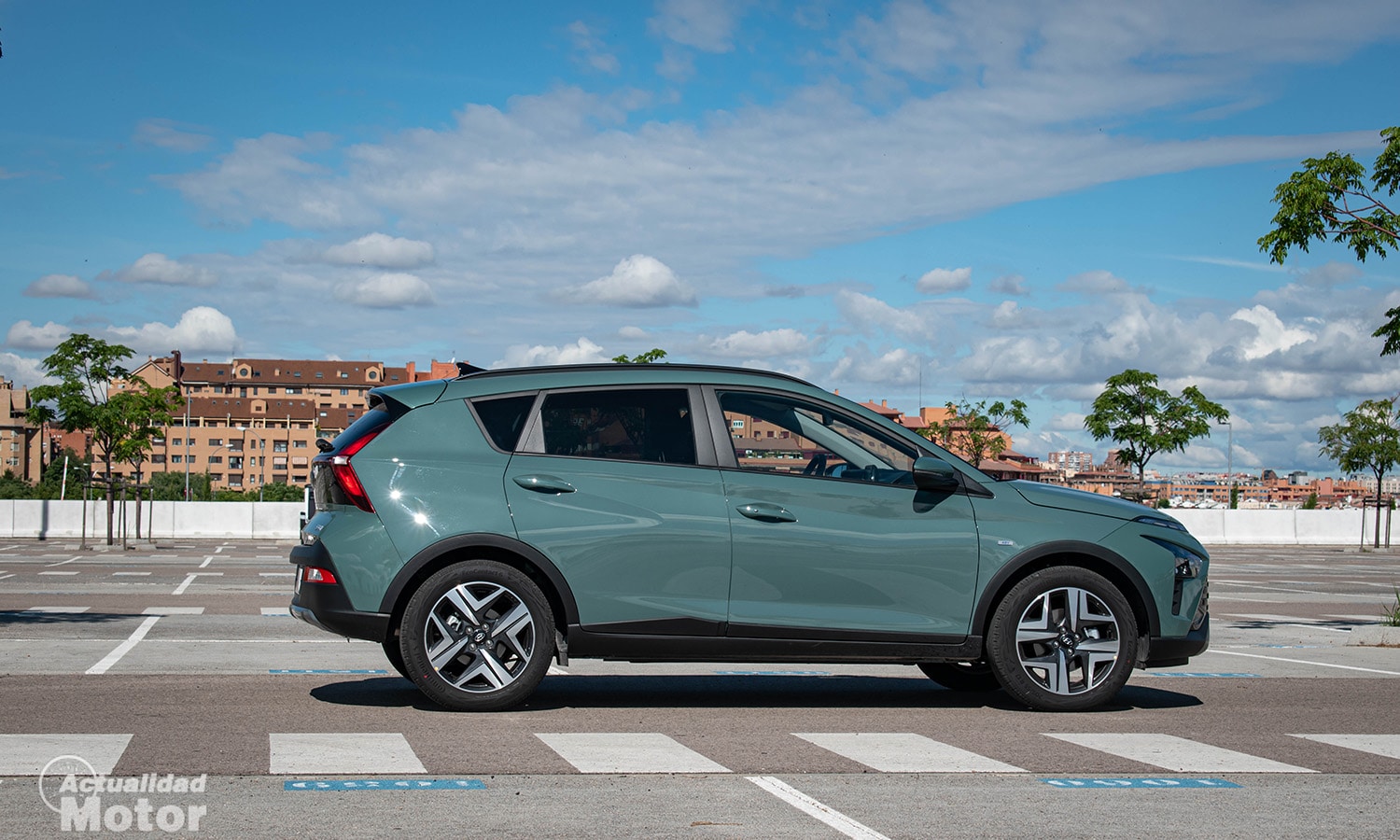
Each one has its own style of design, some being more conservative and others more striking, something that will already be in the tastes of consumers. The main strengths of the Bayon are technology, great breadth interior combined with a trunk generous, the possibility of the Eco label through the 48-volt system and large doses of security.
To all this we must add that, as is usual in the Asian firm, it has five year unlimited mileage warranty. To top it off, with the current discounts, we can acquire a Hyundai Bayon from only 14.290 euros. A unit like the one we have tested (Techno finish and 100 hp microhybrid and manual motor) could cost us around 20.600 euros according to the official rate.
Featured equipment Hyundai Bayon
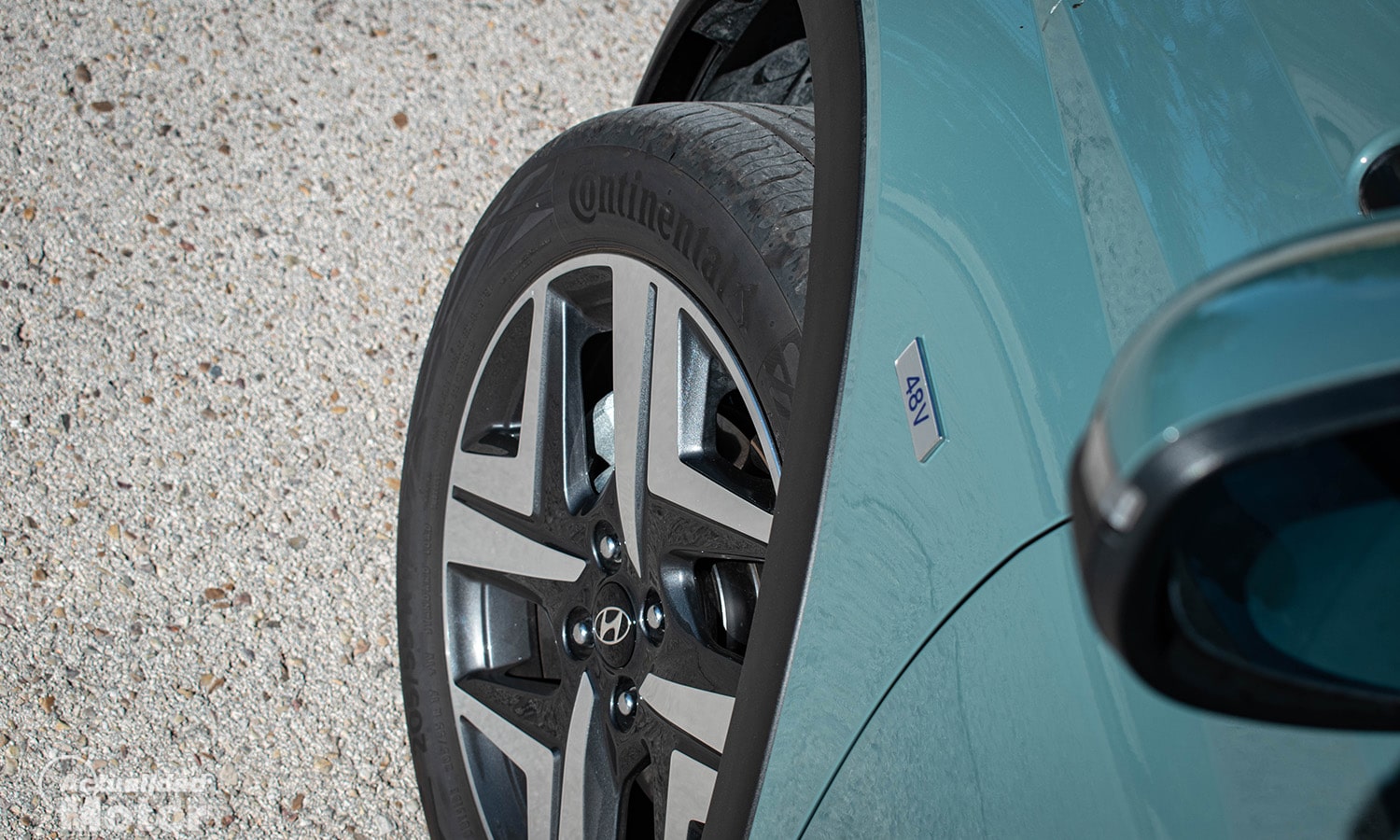
Gasoline
- 15-inch steel wheels
- Roof bars
- Sports seats
- Emergency braking with pedestrian and cyclist detection
- high beam assistant
- Cruise control
- Automatic lights
- DAB digital radio
Maxx
- 16-inch alloy wheels
- 10,25 digital instrument cluster
- 8-inch audio display
- Wireless Apple CarPlay and Android Auto
- Reversing camera
- rear parking sensors
- Electrically folding mirrors
- LED ambient light
Tecno
- 17-inch alloy wheels
- Automatic climate control
- LED headlights
- Fog lights
- Electrochromic interior mirror
- Rain Sensor
- Smart Key
- Blind spot collision warning
- Wireless charger
Style
- Touch screen of 10,25 inches
- integrated navigation system
- Bluelink Connected Services
- smart cruise control
- Front and rear parking sensors
- LED taillights
- Turn and cross collision avoidance assistant
- Lane Keeping Assist
- Two-tone ceiling
Hyundai Bayon official prices
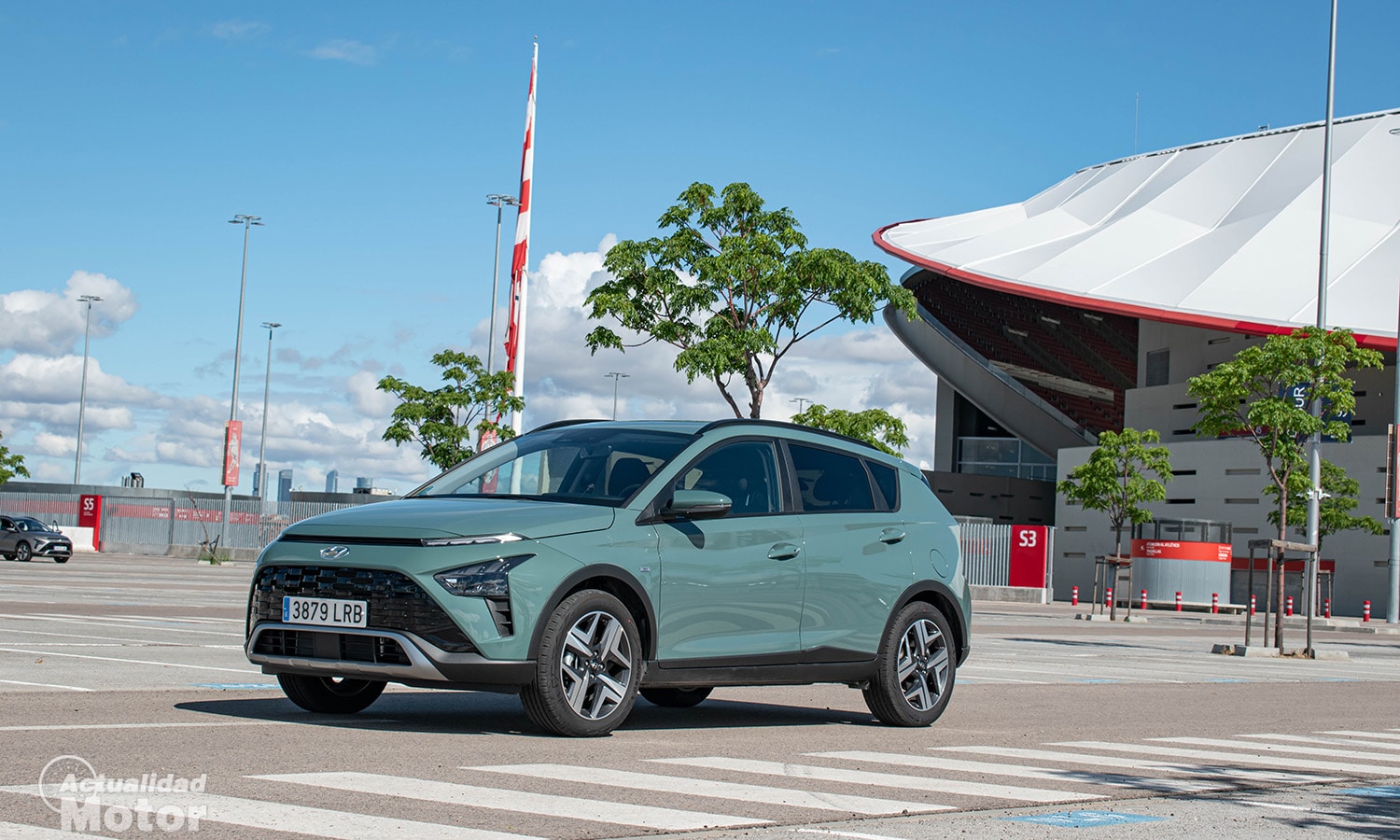
In the following table we have the official prices without discounts or Hyundai campaigns. Currently there is a launch campaign of 3.000 euros, another 1.200 euros for financing and 1.000 more if we deliver a car of any brand. In total, we can benefit from up to 5.200 euros.
| Motor | Change | Finish | PVP |
|---|---|---|---|
| Motor | Change | Finish | PVP |
| 1.2 MPI 85 hp | manual 5v | Gasoline | 19.490 € |
| 1.0 T-GDI 100 hp | manual 6v | Gasoline | 20.490 € |
| 1.0 T-GDI 100 hp 48V | i-MT 6v | Gasoline | 20.840 € |
| 1.2 MPI 85 hp | manual 5v | Maxx | 21.565 € |
| 1.0 T-GDI 100 hp | manual 6v | Maxx | 22.565 € |
| 1.0 T-GDI 100 hp 48V | i-MT 6v | Maxx | 22.915 € |
| 1.0 T-GDI 100 hp 48V | DCT 7v | Maxx | 29.905 € |
| 1.0 T-GDI 100 hp | manual 6v | Tecno | 24.565 € |
| 1.0 T-GDI 100 hp 48V | i-MT 6v | Tecno | 25.815 € |
| 1.0 T-GDI 100 hp 48V | DCT 7v | Tecno | 26.805 € |
| 1.0 T-GDI 120 hp 48V | DCT 7v | Style | 28.120 € |

